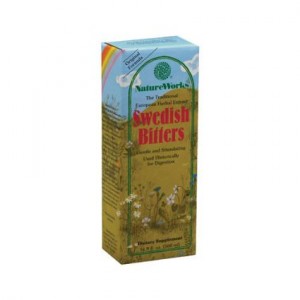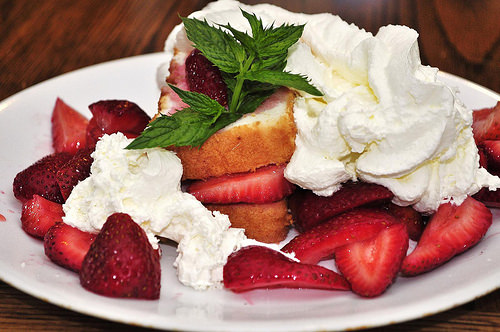Tips For Easy Fat Digestion After Gallbladder Surgery
by Sarah TheHealthyHomeEconomist
How to go about eating fat, even healthy fats, after gallbladder surgery seems to be an increasingly common dilemma nowadays.
Why in the world are so many folks having problems with this small organ that aids in fat digestion by storing and concentrating bile produced by the liver?
Could the gallbladder surgery epidemic be related to our fat phobic society with malfunctioning or atrophying gallbladders the result from lack of proper use?
Whatever the reason, there are indeed a lot of folks walking around without a gallbladder and many are under the incorrect impression that after gallbladder surgery they can no longer eat fats without digestive discomfort.
The first thing to realize after gallbladder surgery is that you can most certainly still eat fat. The bile necessary to digest most fat is made in the liver, not the gallbladder, and you still have a liver, right?
What you really need is a dietary strategy that compensates for the fact that your body no longer has a place to store and concentrate the bile much like a person with no appendix needs a strategy for replenishing beneficial flora to the gut after intestinal illness because there is no longer a place where good flora stay secure during bouts of gastroenteritis.
Please note that the tips outlined below are also very helpful to those who have been eating lowfat for a long time and are just now coming around to the fact that whole, unprocessed fats in the diet are critical to health.
Many times, folks who start to embrace and eat a plentiful amount of fats again after many years of avoidance experience the same digestive challenges as someone after gallbladder surgery – almost like their bodies have “forgotten” how to digest fats!
So whether you are adjusting to life after gallbladder surgery or simply trying to adjust to eating fats again as practiced by healthy Traditional Societies, keep these tips in mind for making the transition that much easier.
Cholesterol Still Needed for Bile After Gallbladder Surgery
It is very important thing to realize after gallbladder surgery that you still need cholesterol to produce bilewhich assists with the digestion of regular long chain fats and oils. Note that short or medium chain triglycerides like coconut or palm oil do not require bile for digestion.
Cholesterol is required for the production of bile and the very foods that have sufficient and healthy quantities of cholesterol are those that are, you guessed it, quite fatty, like liver, egg yolks, cream, and butter.
Avoiding fat after gallbladder surgery is potentially going to compound problems with digesting fat in the long run as you won’t be getting the healthy, unprocessed cholesterol you need to produce bile!
Do you see the vicious cycle that can occur if you avoid fat after gallbladder surgery?
Please note that this discussion does not include oxidized cholesterol like what is in pasteurized, homogenized dairy (even if organic or skim) and the vast majority of processed foods. Oxidized cholesterol is to be avoided in the diet and is the type of cholesterol that can trigger heart disease (Atherosclerosis. 2000 Mar;149(1):181-90).
Bitters Stimulate Bile Production After Gallbladder Surgery
Once you are comfortable with the fact that you can and should eat fat after gallbladder surgery and that it is wise to do so in order to provide your liver with the raw materials necessary for bile production, the next step is to “train” your liver to produce the bile you need at the proper times to digest the fats you eat with your meals.
 Eating at regular intervals that your body can adjust to can go a long way toward this goal.
Eating at regular intervals that your body can adjust to can go a long way toward this goal.
If a regular routine for consuming your fats does not prove helpful after a period of time or you are temporarily off schedule for whatever reason, use of herbal bitters can be used in conjunction.
Bitters are herbal extracts that are rich in minerals. They are an ancient tonic for stimulating the liver to produce bile.
Traditional Asian cultures have long valued bitters not only for their digestive benefit but also for their cleansing properties which promote increased strength and healing.
Most healthfood stores have bitters available for purchase at very reasonable prices.
A single teaspoon of bitters in a small amount of water in the morning and in the evening should be sufficient to stimulate your liver to produce adequate amounts of bile.
When All Else Fails After Gallbladder Surgery …
If despite all your best efforts, you still have digestive issues with fats after gallbladder surgery, you can use a bile salts supplement to assist you.
Supplements should be a last resort, however, as it is always best to encourage the body to do its job unassisted if at all possible.
The important thing to keep in mind is that your need for healthy, unprocessed fats does not change after gallbladder surgery. You still need these fats for optimal health and so finding a way to consume them comfortably is of paramount importance.
Keep in mind the research of Dr. Weston A. Price – it is the sacred foods which were all fatty and of animal origin that were prized by Traditional Societies. These foods contained large amounts of Vitamins A, D, and K2 which were responsible for their strong, sturdy babies and children, resistance to chronic and infectious disease, easy fertility, and vitality into advanced age.
The fat soluble activators A, D, and K2 supercharge mineral absorption into the tissues as well so avoiding fat is a recipe for disaster and will likely contribute to a mineral starved state and other deficiencies and health challenges over time.
Fat is a critical nutrient that you cannot do without and still enjoy vibrant health. Finding a successful strategy for consuming foods with the fats you need is the best approach after gallbladder surgery – not avoiding them as recommended by conventional medicine.
Sarah, The Healthy Home Economist
Sources:

